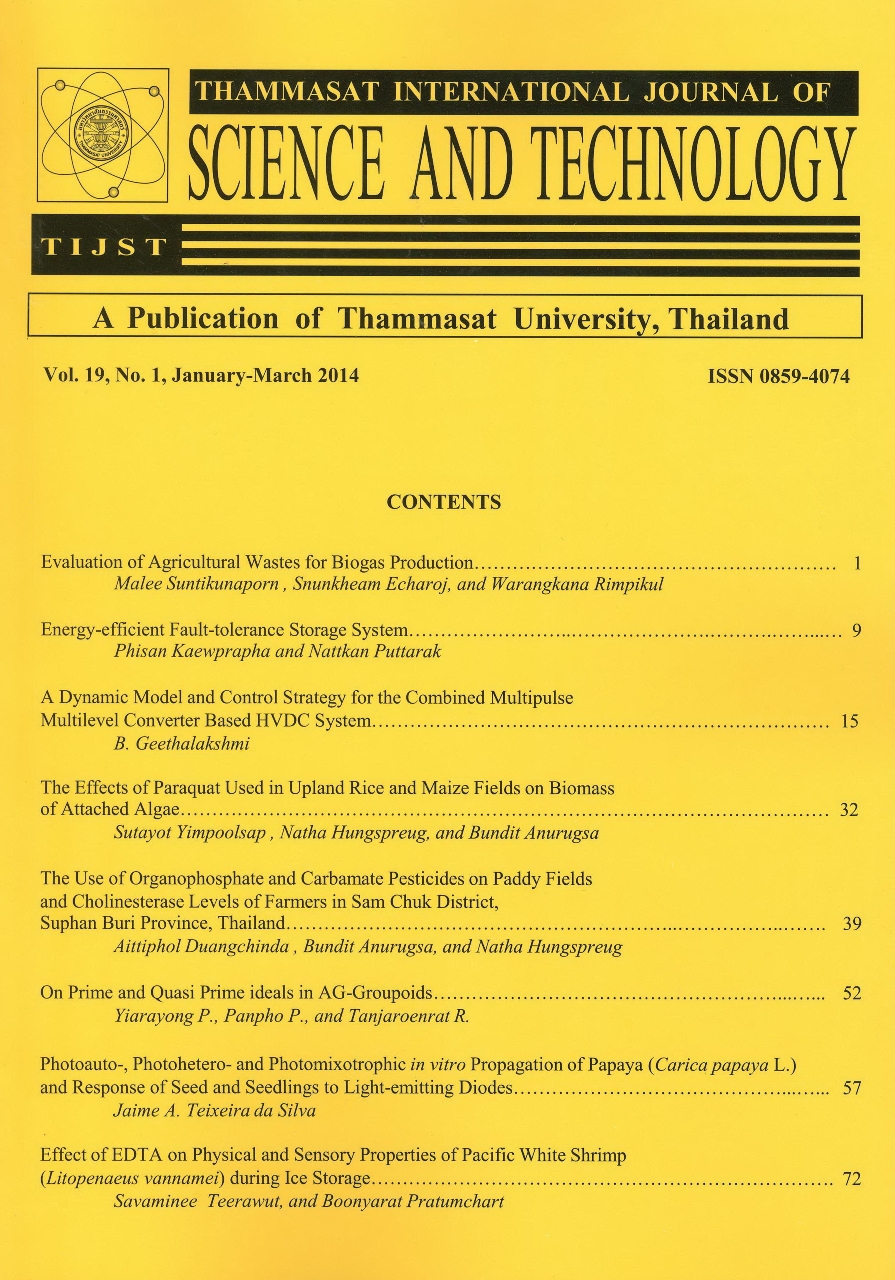Energy-efficient Fault-tolerance Storage System
Main Article Content
Abstract
In this paper, we propose an energy-efficient storage system, in which the idea of massive array of idle disk (MAID) [1] is incorporated into a parity-based fault-tolerance storage system, using a class of XOR-ing error correcting codes. This system aims to serve as a massing write-once read-many system (WORM). Example applications include massive data gathering, data archiving, or surveillance system. Unlike other proposed schemes or commercially-available MAID systems, firstly, we explicitly show that the extended life-span of disks, which is a byproduct of conserving energy by turning off some disks, reduces the probability of data loss compared with the same class of system with fault-tolerance feature. We consider using a deeper energy-saving state by totally powering off storage nodes instead of just slowing down disk's spin. The deeper offline state poses a challenge to our system; it is more difficult to monitor if any disk might have failed during the offline state. We address this issue by proposing a less frequent periodic monitoring scheme that makes use of the prolonged failure rate, while minimizing the degradation of the overall system reliability, aka failure that leads to data loss. Simulation shows that we can improve the power consumption without scarifying much of neither delay time nor reliability.
Article Details
How to Cite
Kaewprapha, P., & Puttarak, N. (2014). Energy-efficient Fault-tolerance Storage System. Science & Technology Asia, 19(1), 9–14. retrieved from https://ph02.tci-thaijo.org/index.php/SciTechAsia/article/view/17061
Section
Articles


